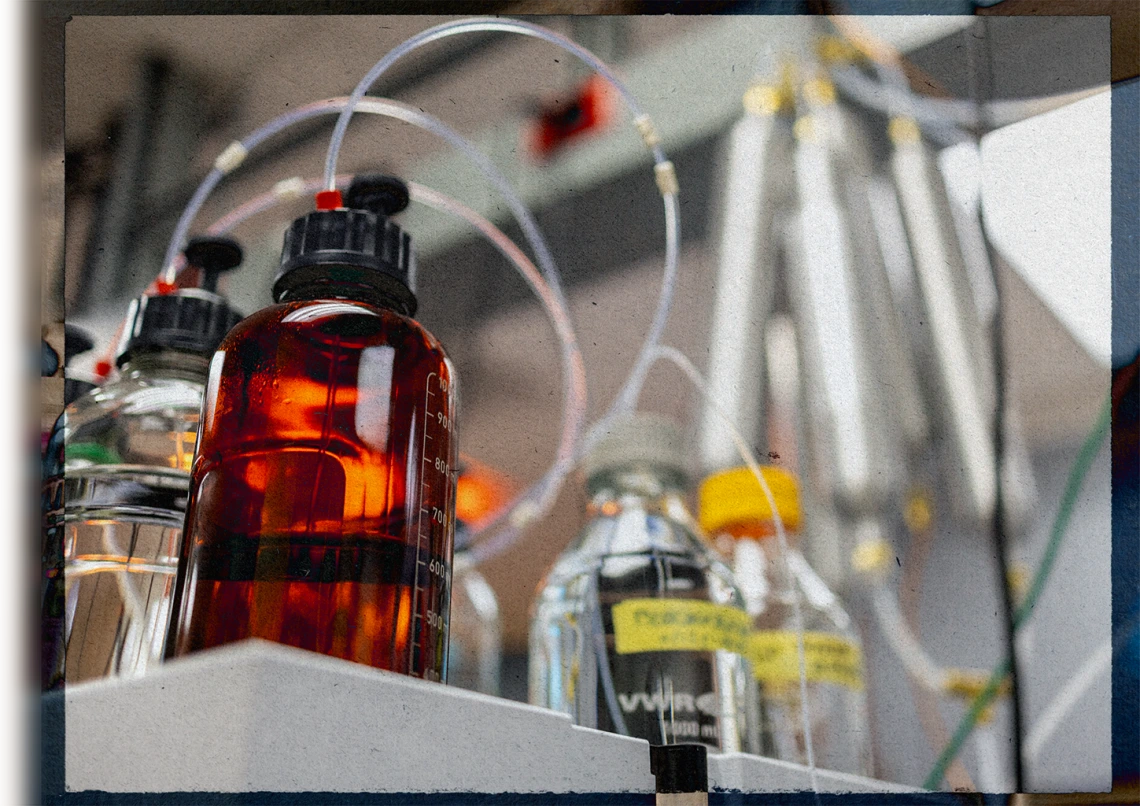Services include:
- Consultation on study design including selection of established, validated assays from the analytical assay protocol repository and/or development of new assays
- Development/implementation of analytical chemistry assays for quantification of small molecules (<1,500 daltons) in biological specimens
- Quantitative analysis of small molecules in clinical and preclinical samples using chromatography and mass spectrometry-based systems or atomic absorption spectrophotometry
- Performance of targeted metabolomics analysis and untargeted metabolomics profiling
- Pharmacokinetic study design, quantitative analysis of drug levels, and pharmacokinetic and pharmacodynamics data analysis
Analytical Chemistry Equipment
State-of-the-art equipment and sophisticated analytical chemistry techniques are provided by the ACSR to cover a broad variety of needs. Personnel are trained experts in the operation and maintenance of the equipment. They have the expertise to develop and optimize the appropriate methods. Major equipment includes:
- Agilent Ultivo Triple Quadrupole Mass Spectrometer with 1290 Ultra Performance Liquid Chromatography System
- Agilent 6495 Triple Quadrupole Mass Spectrometer with 1290 Ultra Performance Liquid Chromatography System
- ThermoFinnigan TSQ Quantum Ultra Mass Spectrometer with High Performance Liquid Chromatography System
- Waters Xevo G2-S QToF Mass Spectrometer with Ultra Performance Liquid Chromatography System
- ThermoFinnigan Trace DSQ Gas Chromatography Mass Spectrometer System
- Perkin Elmer Aanalyst 600 Atomic Absorption Spectrophotometer System
- Thermo TSQ Quantum Ultra Mass Spectrometer (3rd Generation) High Performance Liquid Chromatography
- Sciex 5500 QTrap Mass Spectrometer with Ultra High Performance Liquid Chromatography
- Agilent Intuvo 9000 Gas Chromatography with Flame Ionization Detector
- Access to Thermo Exploris 480 with Thermo Vanquish Horizon Duo Ultra High Performance Liquid Chromatograph
Metabolomics and Lipidomics
The Analytical Chemistry Shared Resource (ACSR) has developed a metabolomics and lipidomics program to profile these small molecules in biofluids, cells and tissues. These analyses are routinely used for biomarker discovery and to identify regulation of molecular pathways. Lipid and polar metabolite libraries provide confident identification of over 500 compounds from plasma, urine, tissues, and cell lines. These libraries complement the burgeoning untargeted metabolomics/lipidomics program in ACSR that revolves around a state-of-the-art Thermo Vanquish Duo UPLC tandem Exploris 480 Q-Orbi Mass Spectrometer (LC/MS/MS).
Metabolites are acquired with both HILIC and Reverse Phase chromatography in positive ion mode to provide comprehensive metabolome coverage. Specialty Reverse Phase chromatography and libraries have been developed for lipidomics analysis. Metabolomics data can be further enhanced through a statistical pipeline (being developed by BBSR) and metaboanalyst analysis that provide pathway enrichment and network analysis to pinpoint nodes of regulation. Lipidomics analysis is enhanced through custom R code to analyze lipid class, degrees of saturation, and chain length.
To build a project, get a quote, or order a service within iLab:
- Step 1: Select “About Our Core” to learn more about this Shared Resource.
- Step 2: Login or sign up for an iLab account here, at the University of Arizona. For login help, email iLab-support@agilent.com.
- Step 3: Once the login step is completed, obtaining prices, services and scheduling is available within the iLab system.
Please remember to acknowledge the Cancer Center Support Grant (P30 CA023074) when publishing manuscripts or abstracts that utilized the services of the University of Arizona Cancer Center’s Shared Resources and/or were derived from CCSG pilot funds. Suggested language: "Research reported in this [publication/press release] was supported by the National Cancer Institute of the National Institutes of Health under award number P30 CA023074.
Contact
Potential users, especially first-time users, are encouraged to personally contact ACSR service personnel for instructions on how to access all the services of the Analytical Chemistry Shared Resource.
Please contact Dr. Snider by phone or email. After a short discussion about your project, the service request form can be submitted to the ACSR and a realistic timeline can be projected.
All University of Arizona Cancer Center members have access to the Analytical Chemistry Shared Resource. The service is provided according to the following University of Arizona Cancer Center priority guidelines
- University of Arizona Cancer Center members with peer-reviewed extramural funding;
- New University of Arizona Cancer Center investigators with University of Arizona Cancer Center pilot project or developmental funding;
- University of Arizona Cancer Center members with other funding sources;
- Peer-reviewed, funded non-members at University of Arizona if sufficient time/resources are available to accommodate requested service.




